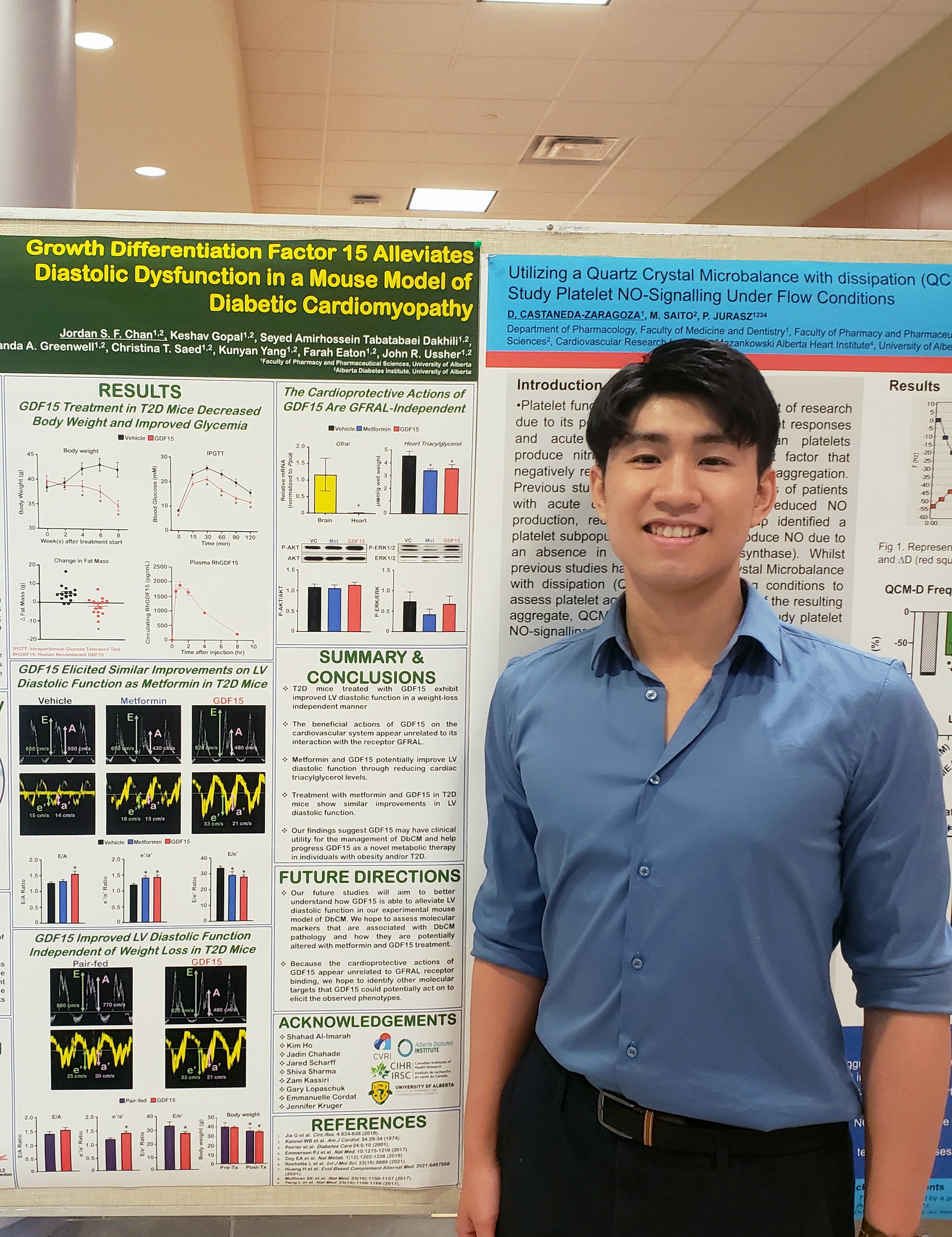Research
Graduate student Jordan Chan hopes his research will provide additional insight into potential treatments for diabetic cardiomyopathy
30 November 2022

Jordan Chan. Photo supplied.
Please tell us about your diabetes research.
Individuals with Type 2 diabetes (T2D) are at a very high risk of developing heart disease. In particular, diabetic heart disease, which is also referred to as diabetic cardiomyopathy (DbCM), is a unique clinical entity that has been increasingly recognized in patients with pre or early stage T2D. Unfortunately, if DbCM is left untreated, it can progress into heart failure and eventually these individuals will die due to cardiovascular causes. Although the mechanisms underlying DbCM have been well studied, there are currently no specific therapies available for its management.
My research focuses on using a protein called growth differentiation factor 15 (GDF15) as a potential drug for the treatment of DbCM. Using an experimental mouse model of DbCM, we treat the animals daily with GDF15 and investigate whether heart function is improved over time using ultrasound echocardiography.
Please tell us about the impact your diabetes research will have in treating or building the knowledge base for diabetes.
My research will hopefully provide additional insight into potential treatments specific for DbCM. So far, we have observed that treatment with GDF15 improved heart function, in addition to lowering blood glucose, in our preclinical animal model of DbCM. Overall, I believe my research will play a role in advancing GDF15 as a potential medication for human patients with DbCM in a clinical setting.
What inspired you to choose diabetes as a research stream?
Although my background was in physiology, I became interested in diabetes, and specifically T2D, research because I have a family history of it. Particularly, my grandfather, whom I am really close with, has been living with T2D for nearly four decades. When I told him I was interested in pursuing a career in the health sciences, we would often discuss his medical reports and medications as well as recent advancements in the field of diabetes. I believe that these conversations ultimately helped guide my decision to pursue diabetes as a research stream for my graduate studies.
What difference do you want to make or see in diabetes research in the next 10 years?
In the next 10 years, I hope that there will be greater emphasis on investigating novel treatments for the management of DbCM given that there are limited therapies currently available. If DbCM can be quickly diagnosed and treated in patients with pre or early stageT2D, I believe its would reduce the incidence of heart failure in this population and greatly improve their cardiovascular outcomes. In addition, I hope that diabetes researchers will account more for sex as a biological variable in their experimental design, especially in the field of DbCM. Even though there is an apparent sex difference in the phenotype and prevalence of DbCM, females are heavily underrepresented in this field and I hope that in the next decade, diabetes research will start taking sex into consideration.